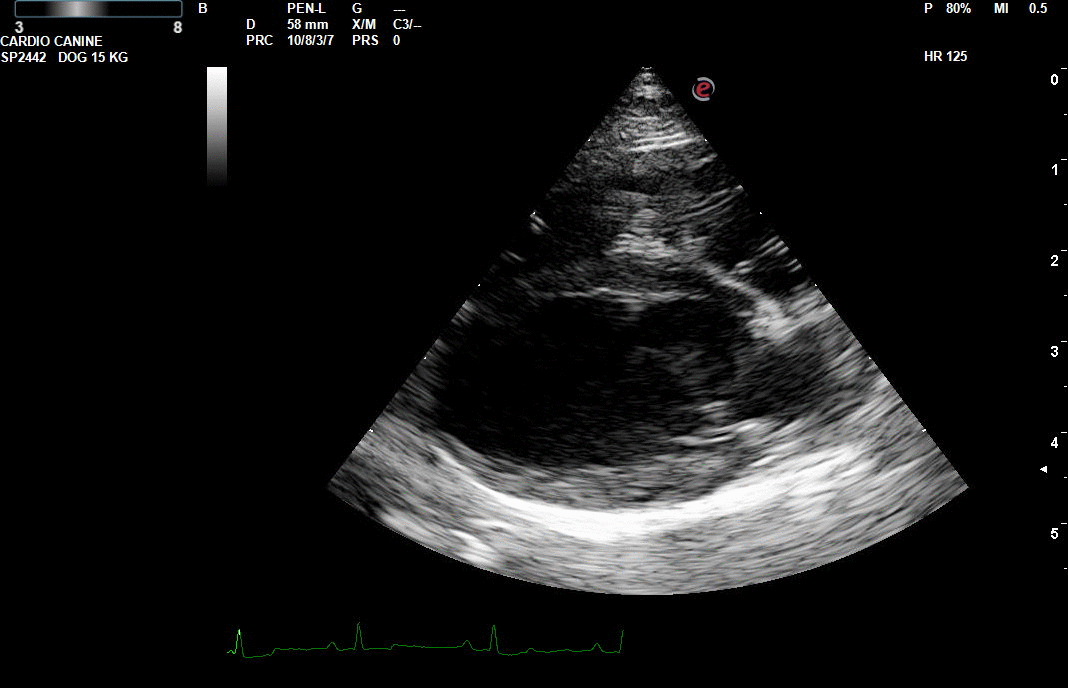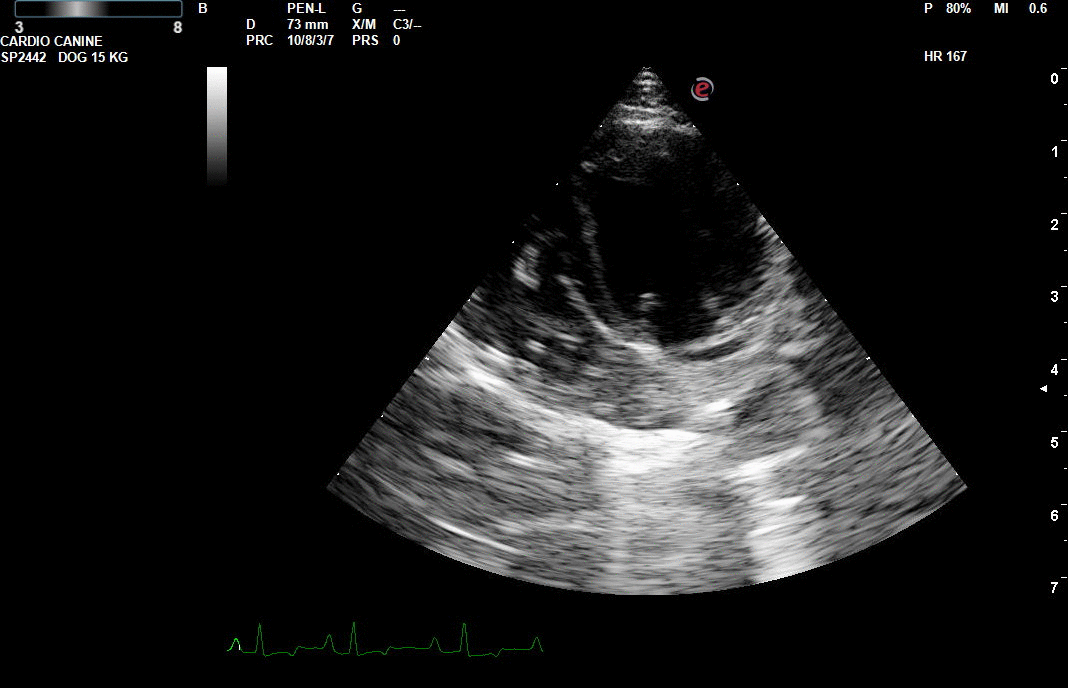December's Case of the Month - 2022
Heartworms in a Young Dog
PATIENT INFORMATION:
Species/Breed: Canine/Chihuahua
Age: estimated just under 1 year old
Gender: Male
Weight: 6.6 lbs
HISTORY:
The patient was adopted about 3 months prior to presentation with no prior history. The patient was presented for lethargy, disorientation (walking into walls), inappetence, coughing and syncopal episodes. An echocardiogram was recommended to rule out a cardiac cause for syncope.
PERTINENT ECHOCARDIOGRAM FINDINGS:
The tricuspid valve appears normal with mild tricuspid regurgitation. The TR velocity is increased suggesting severe pulmonary arterial hypertension and the right ventricle appears subjectively dilated.
Multiple parallel lines are seen in the right atrium and ventricle crossing the tricuspid valve consistent with adult heart worms.
Image 1: Heartworms within the right heart (near field) seen in the right parasternal long axis 4 chamber view
Image 2: Heartworms within the right heart (left screen) seen in the left apical 4 chamber view
Image 3: Heartworms seen falling from the right atrium into the right ventricle in the left parasternal cranial right atrial view
DIAGNOSIS:
In view of the clinical signs and echo findings, caval syndrome is suspected with the adult heart worms migrating from the pulmonary arteries into the right heart causing obstruction and cell lysis. Hemoglobinuria is likely.
There is severe pulmonary hypertension present which is concerning for the longer term.
RECOMMENDATIONS:
Pimobendan (0.2 - 0.3 mg/kg every 12 hours) and sildenafil (1 - 3 mg/kg every 8 hours) should be started and in some cases, this can cause the worms to move back into the pulmonary arteries.
Urgent referral to a specialist center for heart worm extraction is strongly recommended.
Longer term treatment should include doxycycline and prednisolone as per the American Heartworm Association recommendations:
1) Exercise restriction
2) Heartworm prevention
3) Doxycycline at 10 mg/kg BID for 4 weeks
4) Prednisolone 0.5 mg/kg BID tapering every 7 days
4) Melarsomine on day 60, 90 and 91 and repeating the tapering prednisolone regime after injection
5) Test on day 120 and 365
Recommend recheck echocardiogram in 3 months to assess any resolution of the pulmonary hypertension.
FOLLOW UP:
The owner declined referral for heart worm extraction. The patient has been treated medically and is currently doing well.
Sonographer: Cary Sparkman, DVM
Special thanks to Crater Road Veterinary Hospital and Simon Swift, MA, VetMB, CertSAC, DipECVIM-CA (Cardiology), MRCVS with DVMSTAT



